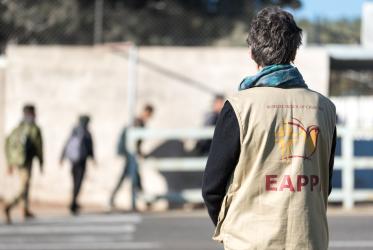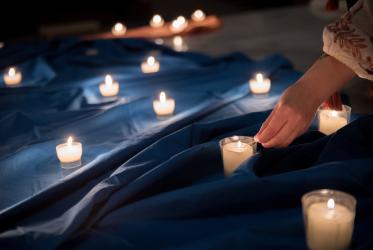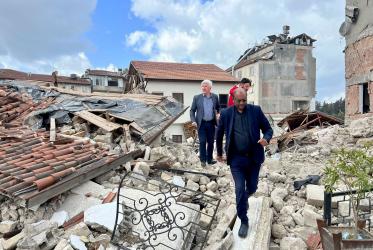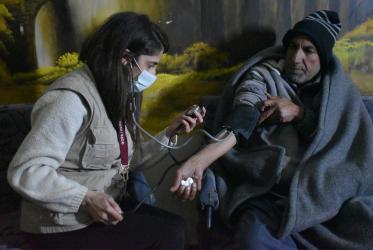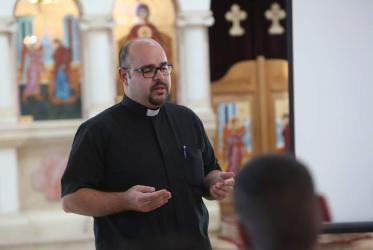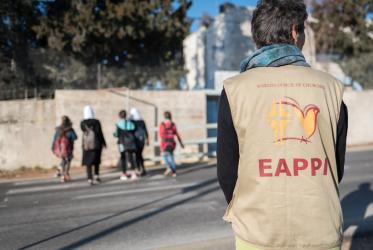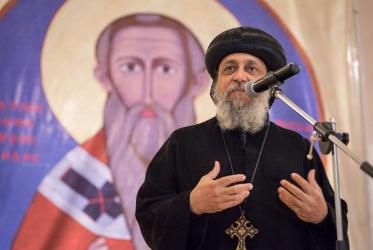Displaying 1 - 20 of 30
16 January 2024
Ecumenical accompaniers report growing violence against Palestinians
21 September 2023
Dr Saïd Ailabouni: God is on the side of rejected, oppressed, occupied
12 September 2019
Praying and building bridges
29 November 2017
Churches call for urgent action for Cremisan Valley
28 September 2017
Women in development create space for hope in Egypt
15 June 2017
Carrying the cross without fear
12 April 2017
Children from Bethlehem in key role, as WCC shares Christmas message
22 December 2016
The child in the manger and the war in Syria
22 December 2016

